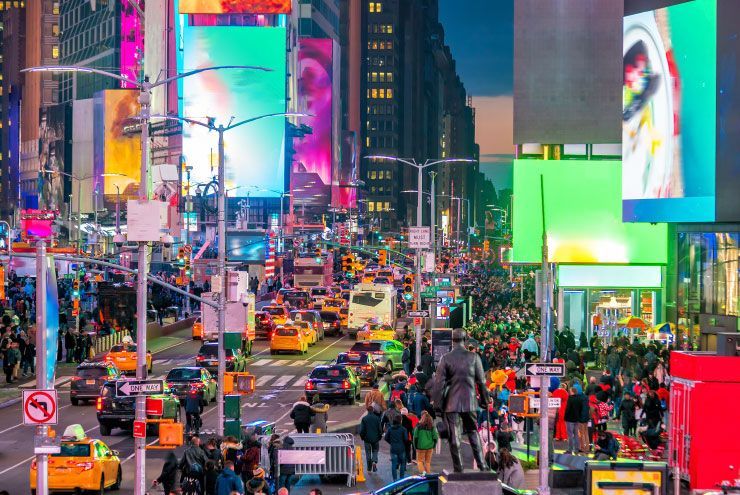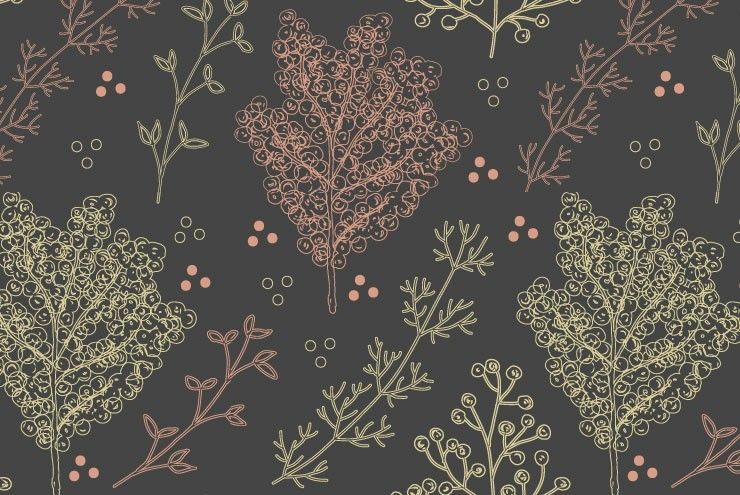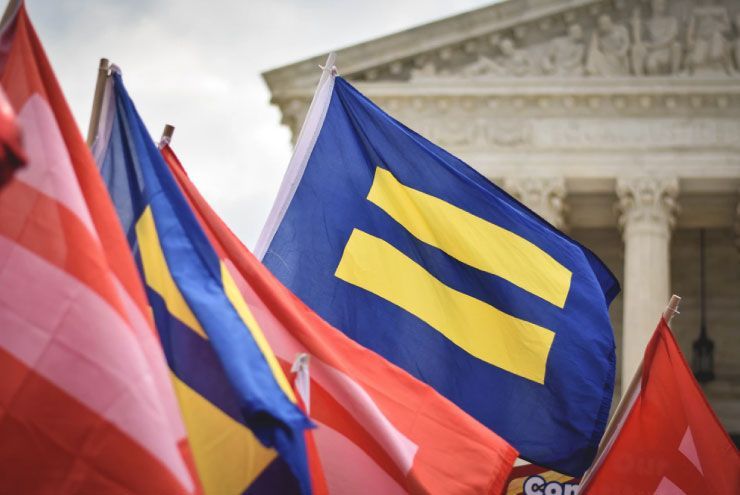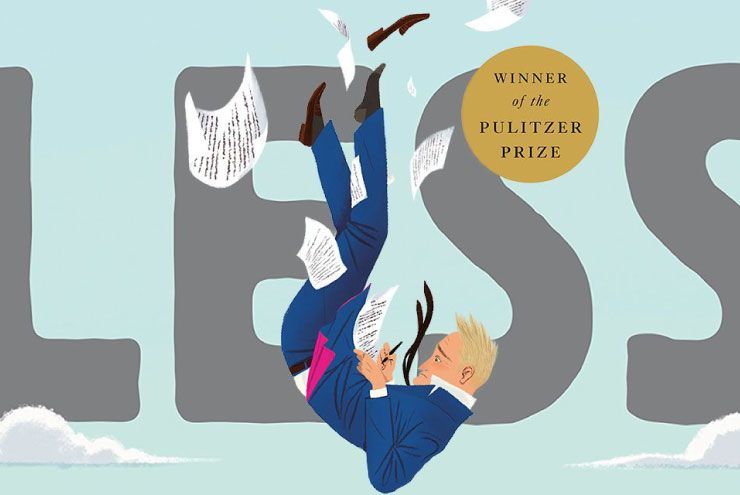By Luke Miller
It sounded like a wave breaking.
When you’re watching Hamilton and a gun goes off, you expect a bit of audience commotion. You anticipate some sort of reaction to an emotional climax of a two-and-a-half-hour story—a murmur; a shifting in seats; the rustling of fabric on theater upholstery, a breeze through leaves.
What sparked the red flag is when it didn’t stop.
I could hear the sound spreading. People attempted to quiet the whisperers, but this was a force of nature, one that remained unmoved by the wishes of men. It kept its volume, swelled slightly. And then the screams started.
They were muffled, at first—shrill whistles of panic blocked by layers of concrete. But they got louder. The white horses on our aural sea galloped faster. Our immersion was broken—I turned to my parents, once, only once, in confusion before the house lights came on.
The eyes adjust in moments of panic like that, I realized, as everyone around me huddled down in the rows of the theater. I didn’t know what was happening, and in the haze of adrenaline, I couldn’t think to ask. All I could do was breathe and think to myself, “Keep yourself calm. You don’t know what’s happening, so you can’t plot your exit points.” But I still looked up to see the emotionless red EXIT signs at the wings of the theater, gleaming sales signs of the most dangerous drug—hope.
About a million different theories crashed through my head at once. It was a medical emergency, someone had reacted to the gunshot and we were all now under the thrall of a collective misinterpretation. It was a shooter, making his way into the theater, making a statement against American decadence and American ideals by choosing Hamilton. It was a bomb in Times Square, and we were waiting for the dust to settle or a chunk of debris to fall through the ceiling. I thought, only for a second—a month, a year, who knew—about the possibility of not existing in a matter of minutes. Memories flashed under my skin and I found myself sort of nodding along, in a bizarre contentment. “If this is how I die,” I thought, “I didn’t do everything I wanted to do, but I’ll go out clawing for it all.” Law school, bodybuilding, festivals, my friendships, my family. It all seemed worth it, the result of an effort I didn’t realize I was making. All those days on the calendar passed uneventfully and it took me so long to realize that they were life.
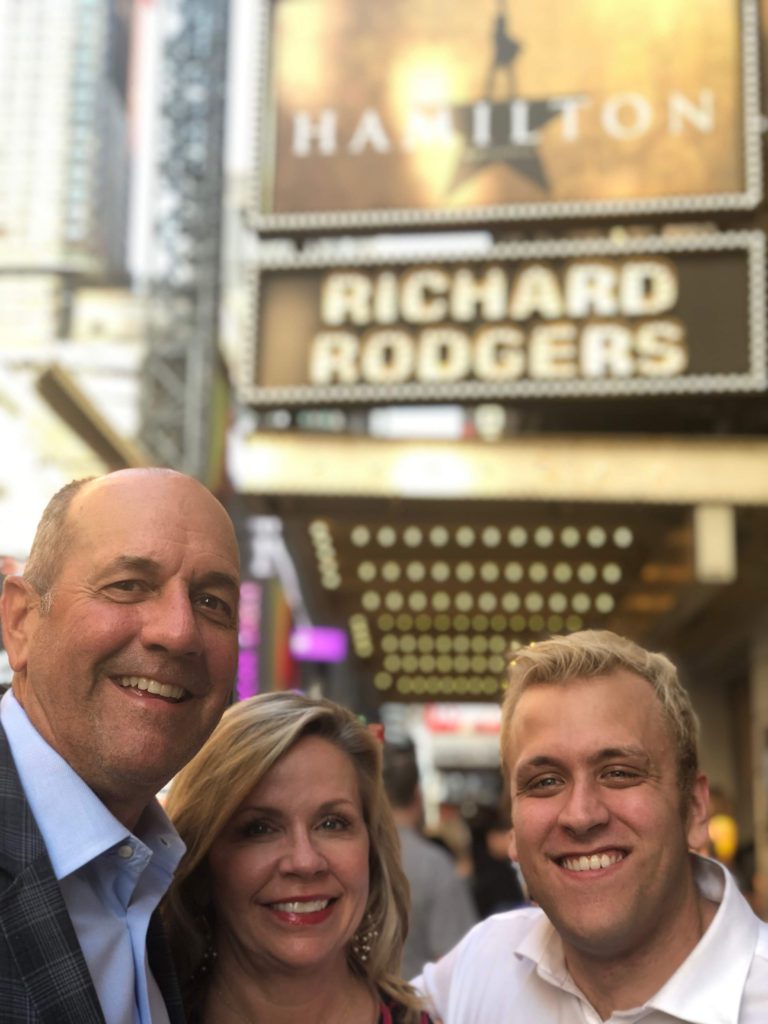
Houstonian Luke Miller (r) with his parents before the Times Square panic.
I felt the familiar comfort of my mother’s touch as she blanketed her body over mine. Emotions now clouded my reflection: the relief at being here, at the end, with the people that mattered most to me. The survivor’s instinct of feeling like I would be protected if push came to shove. The guilt at feeling so relieved, knowing the possibility that my mother’s life would be exchanged for my own.
It took us a minute to all stand up, the announcement from the theater coming through miles of ocean to disbelieving ears. The sound of what happened around me faded back in, and what was more apparent to me than anything was the cries of the children. Sounds of “Mommy!” from voices that wouldn’t dared have said that minutes ago, and small high-pitched sobbing. Dimly, I saw the woman seated next to me (Caroline? Christine?) turn to her daughter, who was heaving in a way that I recognized. I’d done it many times.
I vaguely registered saying “I can help her,” as I brushed by her family. Then instinct took over and I started the familiar routine of grounding. Deep breaths. Establish a baseline of constant breathing. Go through the five senses. End with something they like about themselves. She laughed once and said she liked her eyes. They were beautiful.
I looked around and saw more babies, crying for comfort and unable to give it to all of them. The helplessness of the situation rested on my shoulders now, like a blanket of the world’s burdens. I couldn’t help more of them—I was too far away, with no real connection to any of them like I’d had with the family next to me—but it hit me that all of these kids wouldn’t have been so utterly terrified even five years ago. They knew their reality. They knew an America I hadn’t known.
The director of the play came out and explained the situation. A motorcycle backfired, she said. People panicked, she said. Everything was fine, she said. Everything wasn’t fine. We had all lived through a moment out of time together, a point where the expected stopped for us all and we were confronted with ourselves.
The show finished. The curtain call felt perfunctory. We stood up, our limbs in a collective tremble. Walked our separate ways. Made it home in silence.
I don’t have an event to point to, now. It seems silly to write about a false alarm like this: like we’d somehow suffered some part of a national wound without any breaking of skin or drawing of blood. Talking about it seems toothless, or overborne. And that feeling permeates me even now. To know so many more have gone through the actual situation we thought we were going through. What’s the point of seeing it behind my eyes when I close them?
But I think what really happened that night was the doctor coming back in with a CAT scan and telling us it was worse than we thought. The cancer of a national panic—it’s metastasized, it’s spread. We are all victims of the culture that has led us to this point. We are all huddled in the theater rows, hands over our necks, counting our breaths, praying for mother and for escape and for life.
Praying the cure comes soon.


